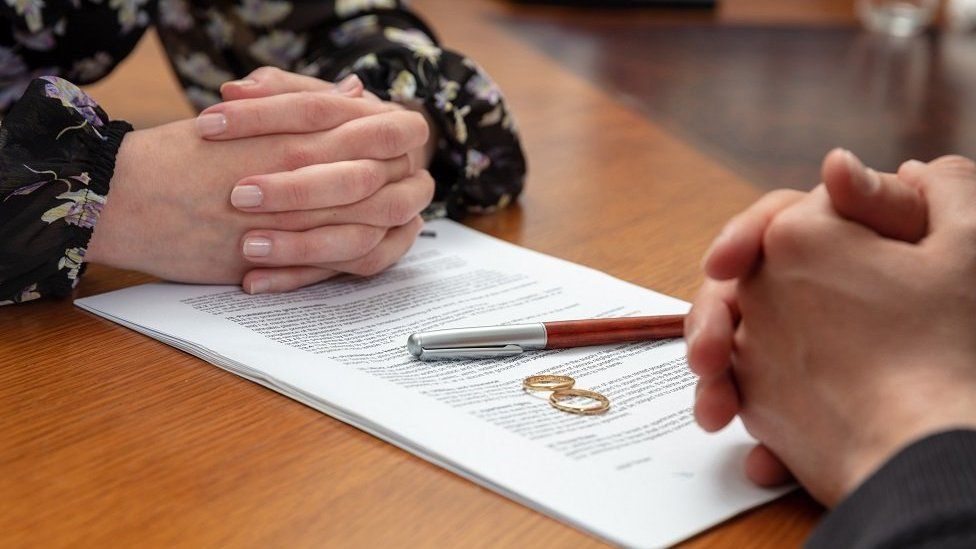
A couple were divorced by mistake after a computer error at a family law firm.
A staff member at Vardag’s accidentally opened the file of a couple referred to in court papers as Mr and Mrs Williams, when trying to apply for a final divorce order for a different client.
Vardag’s applied three days later to rescind the order but judge Sir Andrew McFarlane dismissed the application.
The firm’s head Ayesha Vardag said the judge’s decision effectively meant “the computer says no, you’re divorced”.
Court papers say that Mrs Williams applied for divorce in January 2023 following 21 years of marriage.
The mistake was made by solicitors acting for Mrs Williams on 3 October last year on an online divorce portal operated by HM Courts and Tribunals Service.
In his summary, Judge McFarlane noted that “with its now customary speed”, the system granted the order just 21 minutes later.
Vardag’s did not discover the error until 5 October, thinking the order had been made for another client, but then promptly applied for it to be rescinded.
The husband became aware of the situation only on 11 October, the same day Vardag’s wrote to his solicitors to explain the situation, court papers say.
In the summary, Judge McFarlane, president of the High Court’s Family Division, said the issue arose against the background of “ongoing contested financial remedy proceedings”.
Ms Vardag has been nicknamed the “diva of divorce”, with her firm based in London, as well as offices in Cambridge and Manchester.
The firm describes itself on its website as specialising in “high net worth and ultra high net worth family cases”.
Image source, Vardags
Ayesha Vardag has been nicknamed the “diva of divorce”
Lawyers for Mrs Williams argued that as the order had been made by mistake it should simply be “set aside”, describing the error as someone at the firm simply “clicking the wrong button”.
Mr Williams’ legal representatives argued a final order of divorce is a “once-and-for-all” order, which cannot be set aside by the consent of the parties and may only be rescinded by the court if found to be either void or voidable.
Judge McFarlane rejected the wife’s arguments that the order should be set aside, finding it was not “rendered voidable” by her lack of consent as her solicitors were “generally authorised to act for her and the court was entitled to accept the application for the final order made by them as being validly made on her behalf”.
He went on to say that even if the order was voidable, there was “a strong public policy interest in respecting the certainty and finality that flows from a final divorce order and maintaining the status quo that it has established”.
Ms Vardag said Sir Andrew’s verdict was a “bad decision” and that the state “should not be divorcing people on the basis of a clerical error”, adding there has to be “intention” on the part of the person divorcing.
“When a mistake is brought to a court’s attention, and everyone accepts that a mistake has been made, it obviously has to be undone,” she said.








